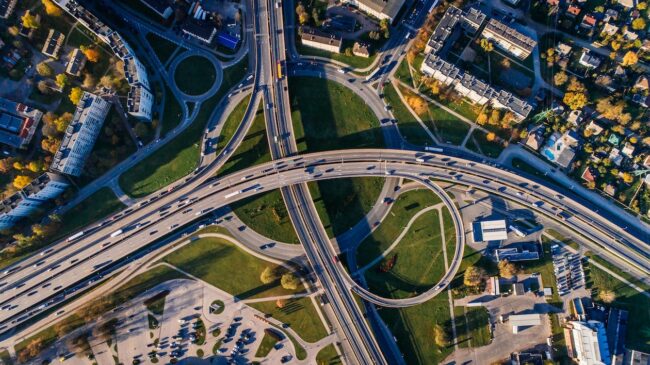
When it comes to understanding a vehicle’s fuel efficiency and performance, one must consider the type of driving conditions it encounters. Two common driving scenarios are city driving and highway driving, and they can significantly impact a vehicle’s mileage and overall efficiency. In this article, we will delve into the differences: City miles vs highway miles, how they affect your vehicle, and some tips to optimize fuel economy.
What are City Miles and Highway Miles?
Before we explore the differences, let’s define what city miles and highway miles refer to:
City Miles
City miles refer to driving within urban or densely populated areas. These driving conditions involve frequent starts and stops, traffic congestion, traffic lights, and lower average speeds. Vehicles often have to accelerate and decelerate more frequently during city driving, leading to higher energy consumption.

Highway Miles
Highway miles, on the other hand, are associated with driving on open roads, typically with higher speeds and a more consistent flow of traffic. Highways have fewer stops and less congestion, allowing vehicles to maintain a steady speed for longer durations.
Fuel Efficiency: City vs. Highway
City miles vs highway miles? One of the critical aspects affected by city and highway driving is a vehicle’s fuel efficiency. Let’s explore how these driving conditions impact the number of miles you can cover per gallon of fuel:
City Driving and Fuel Efficiency
Lower Fuel Efficiency: Due to frequent stops and starts, city driving tends to have lower fuel efficiency compared to highway driving.
Increased Idling: In city traffic, cars often spend more time idling, which consumes fuel without covering any distance.
Short Trips: Short trips in the city can be particularly fuel-inefficient, as engines do not reach their optimal operating temperature during these brief journeys.
Highway Driving and Fuel Efficiency
Higher Fuel Efficiency: Highway driving generally offers better fuel efficiency as vehicles can maintain a more constant speed, leading to less energy waste.
Aerodynamics: Vehicles on highways face less air resistance compared to city driving, improving fuel economy at higher speeds.
Cruising Efficiency: Engines tend to operate more efficiently when running at consistent speeds for extended periods.
Wear and Tear: City vs. Highway
Apart from fuel efficiency, the type of driving conditions also affects the wear and tear on your vehicle:
City Driving and Wear and Tear
Brake Wear: Frequent stops in city driving can lead to increased brake wear and the need for more frequent brake replacements.
Tire Wear: Constant acceleration and braking can wear down tires faster in urban driving conditions.
Engine Stress: The constant stop-and-go nature of city driving can put additional stress on the engine and other components.
Highway Driving and Wear and Tear
Brake Preservation: With fewer stops, brakes tend to last longer during highway driving.
Tire Longevity: Tires may have a longer lifespan on highways due to the steadier driving conditions.
Engine Endurance: Highway driving is generally less demanding on the engine, leading to potentially longer engine life.
Environmental Impact: City vs. Highway
The type of driving you do can also impact the environment in various ways:
City Driving and Environmental Impact
Higher Emissions: City driving’s frequent stops and acceleration can result in higher emissions of greenhouse gases and pollutants.
Air Quality: Heavy traffic in urban areas can contribute to reduced air quality and increased smog levels.
Highway Driving and Environmental Impact
Lower Emissions: Highway driving’s smoother flow and higher speeds tend to produce fewer emissions per mile traveled.
Less Congestion: Highways generally have less congestion, resulting in less idling and reduced environmental impact.

Tips to Optimize Fuel Efficiency
City miles vs highway miles? Regardless of the type of driving you do, there are several tips to enhance your vehicle’s fuel efficiency:
Regular Maintenance
Follow your vehicle’s maintenance schedule, including oil changes, air filter replacements, and tire rotations. Well-maintained vehicles tend to perform better and consume less fuel.
Driving Habits
Avoid aggressive driving behavior such as sudden accelerations and harsh braking, as these actions waste fuel and increase wear on your vehicle.
Combine Trips
Whenever possible, combine multiple errands into one trip. This reduces the number of cold starts, which can be less fuel-efficient.
Proper Tire Inflation
Keep your tires properly inflated, as underinflated tires can decrease fuel efficiency.
Lighten the Load
Remove unnecessary items from your vehicle’s trunk, as extra weight can reduce fuel efficiency.
New car protection tools
Numerous car protection tools are available in the market, but finding one that genuinely guarantees complete security can be challenging. One option is to use specialized boxes or wallets designed to block signals from the key fob, preventing hackers from utilizing signal boosters. While some alternatives are conventional, none rival the Smart Keyless Keeper, an innovative and compact chip that excels in efficiency.
This specially developed chip effectively prevents signal boosters, making it nearly impossible for thieves to break into your car. When your car is stopped, the chip automatically disables the key fob, ensuring the safety of your belongings when you’re at home or away. With the Smart Keyless Keeper, you can have peace of mind knowing that your car and possessions are well-protected against potential theft.
Takeaway
In conclusion, understanding the difference: City miles vs highway miles is essential for maximizing your vehicle’s fuel efficiency and performance. City driving often results in lower fuel efficiency, increased wear and tear, and more significant environmental impact. On the other hand, highway driving typically offers better fuel efficiency, reduced wear on vehicle components, and fewer emissions. By following some simple tips and adopting fuel-efficient driving habits, you can optimize your vehicle’s performance, regardless of the driving conditions you encounter.
Latest Posts
- 1
- 2
Is Buying a Car with Over 100k Miles a Good Idea?
April 10, 2024 - 3
Why Are High Mileage Cars So Expensive? – A Guide
April 5, 2024 - 4
Where Is The Mileage Located In A Car?
April 3, 2024 - 5
Whats High Mileage in Vehicles?
March 29, 2024 - 6
What’s The Gas Mileage On A Smart Car: A Comprehensive Guide
March 27, 2024 - 7
At What Mileage Should You Sell Your Car?
March 22, 2024 - 8
Should You Buy a Car with Over 100k Miles?
March 20, 2024 - 9
Should You Buy a Car with 100k Miles?
March 15, 2024 - 10
Understanding ODO Meaning in a Car
March 13, 2024








